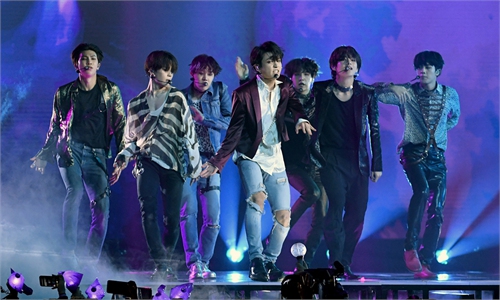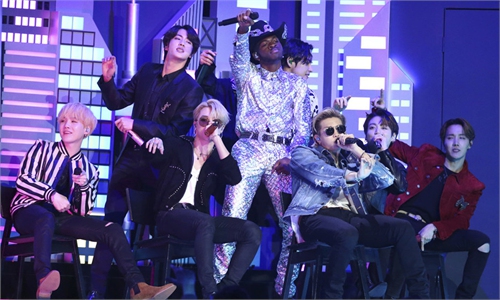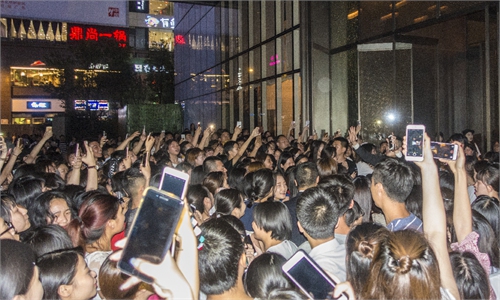700 star-related entities canceled amid national campaign, enhanced management needed to prevent tax evasion

Actress Fan Bingbing's historical drama The Empress of China. The series is back on air after adjusting scenes of female characters with low necklines and tightly squeezed cleavage to close-ups. Photo: IC
Experts are calling for stricter taxation mechanisms to prevent high-income stars from evading taxes by exploiting advantages under local preferential policies, as Chinese stars flood to cancel their studios amid the country's serious campaign to rectify the entertainment industry.
As of Sunday, more than 700 star-related entities had been cancelled this year, including many of first-rank stars. There was also a 278 percent decline in new entertainment companies registered in the country compared with the same period last year, media reports said, citing data from Chinese corporate database Tianyancha.
In late August, Chinese surrogacy scandal actress Zheng Shuang was ordered to pay 299 million yuan ($46 million) in fines, taxes and penalties for tax evasion, and she was also banned from participating in all shows by the National Radio and Television Administration.
According to Tianyancha, Zheng registered one company and six studios. Four of the studios had been cancelled as of Sunday.
Experts warned that canceling studios would not help these stars evade legal punishment, it would only make it harder for tax authorities to check the facts.
If the studio owner was proved to have deliberately evaded tax, there would be no time limitation for the authorities to collect the unpaid amounts, Yue Shenshan, a lawyer from the Beijing YueCheng Law Firm, told reporters.
In China, many stars prefer to open studios rather than companies, as the country charges much lower tax rates for the former. For example, a star has to pay 25 percent tax for company income tax and another 45 percent for individual income tax if he or she receives more than 960,000 yuan for a performance.
Meanwhile, the tax rate in China for a studio, which is treated as an individual proprietorship, is at most 35 percent for operating income - and the star who owns the studio does not need to pay personal individual tax as well. Also, many places in China have offered tax breaks to star studios to attract investment.
For this reason, many entertainment celebrities register studios in small places with preferential tax policies or other bonuses, such as "Chinese Hollywood" - Hengdian in East China's Zhejiang Province - or Wuxi in Jiangsu and the border port Horgos in Northwest China's Xinjiang Uygur Autonomous Region.
After the tax evasion case involving Fan Bingbing, more scrutiny was given to entertainers' taxes, and some places with preferential tax policies, such as Horgos, reportedly examined those "ghost studios."
But that cannot rule out such tax-evasion efforts - it will only make them more secret and more likely to move to lower-level cities and counties that still want to attract money through star studios.
Most of the new 650,000 market entities registered this year are concentrated in certain areas that are far from major cities or urban areas, the Economic Information Daily reported on Monday.
About 1,200 film and TV entities were registered in county Xinyi in Jiangsu, but all were found to be shell companies, said the report.
Basic-level governments will not itemize their tax policies, and confidentiality contracts are signed. Studios go through the normal tax declaration process, but they can get the majority of it returned afterwards, according to the report.
The report said the return rate could be as high as 90 percent, and some studios will reduce the tax base by creating business items to increase "costs" and reduce "income." These shell firms don't promote local jobs or consumption, experts pointed out.
In response to this phenomenon, Liu Junhai, director of the Institute of Business Law at Renmin University of China, stressed that providing tax breaks to star studios through tax refunds violates the national tax law.
The phenomenon has raised a new topic for improving the tax system and market entity management. Related authorities should complete management measures and enhance management capacity in face of the problem, Liu told the Global Times on Monday.




